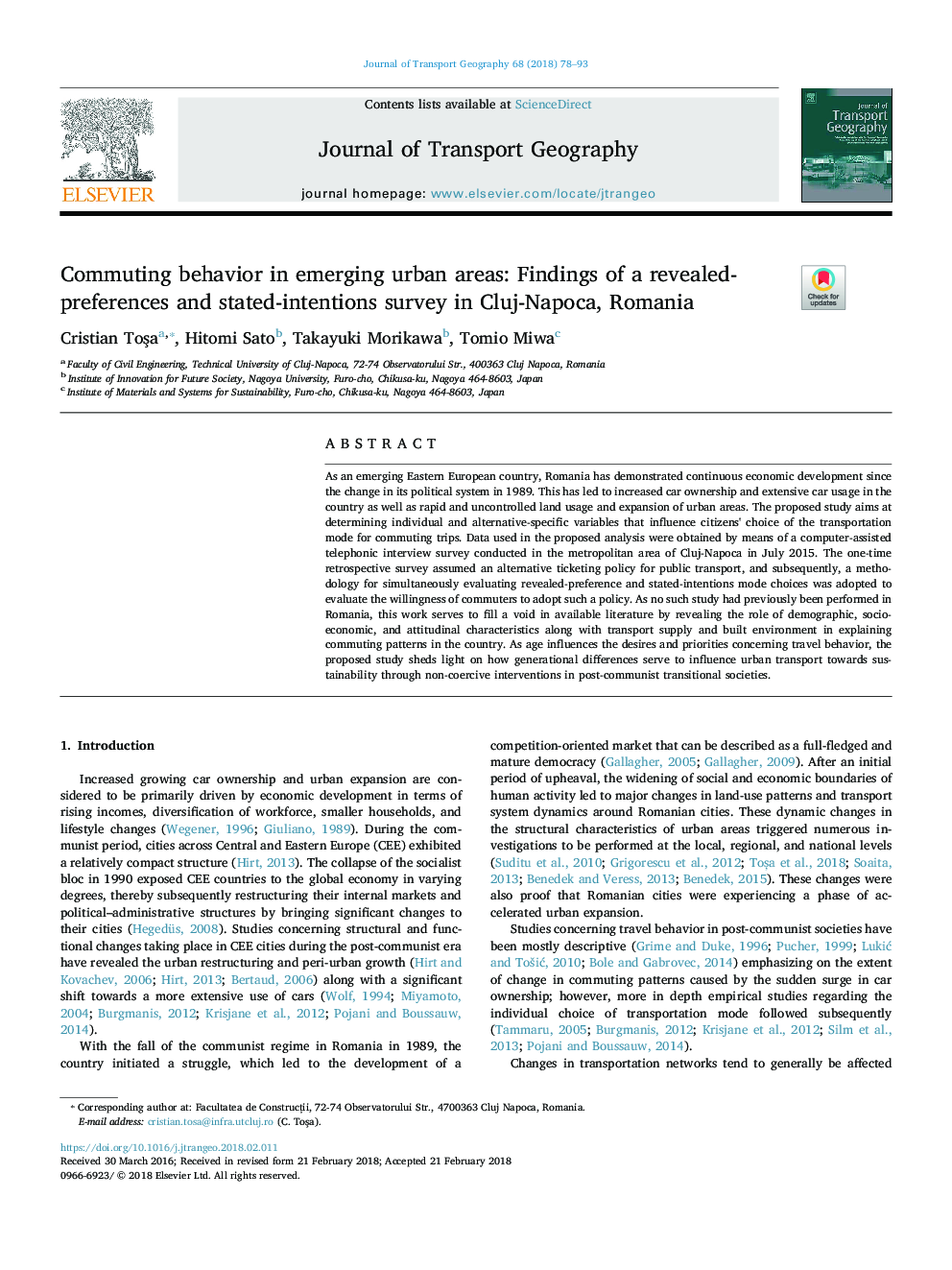| Article ID | Journal | Published Year | Pages | File Type |
|---|---|---|---|---|
| 7485061 | Journal of Transport Geography | 2018 | 16 Pages |
Abstract
As an emerging Eastern European country, Romania has demonstrated continuous economic development since the change in its political system in 1989. This has led to increased car ownership and extensive car usage in the country as well as rapid and uncontrolled land usage and expansion of urban areas. The proposed study aims at determining individual and alternative-specific variables that influence citizens' choice of the transportation mode for commuting trips. Data used in the proposed analysis were obtained by means of a computer-assisted telephonic interview survey conducted in the metropolitan area of Cluj-Napoca in July 2015. The one-time retrospective survey assumed an alternative ticketing policy for public transport, and subsequently, a methodology for simultaneously evaluating revealed-preference and stated-intentions mode choices was adopted to evaluate the willingness of commuters to adopt such a policy. As no such study had previously been performed in Romania, this work serves to fill a void in available literature by revealing the role of demographic, socioeconomic, and attitudinal characteristics along with transport supply and built environment in explaining commuting patterns in the country. As age influences the desires and priorities concerning travel behavior, the proposed study sheds light on how generational differences serve to influence urban transport towards sustainability through non-coercive interventions in post-communist transitional societies.
Related Topics
Life Sciences
Environmental Science
Environmental Science (General)
Authors
Cristian ToÅa, Hitomi Sato, Takayuki Morikawa, Tomio Miwa,
